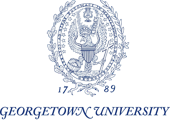Tim Newfield is an environmental historian and historical epidemiologist. After defending his doctoral thesis in History and Classical Studies at McGill University in 2011, he held postdoctoral fellowships at the universities of Michigan (History), Stirling (Centre for Environment, Heritage and Policy) and Princeton (History & the Environmental Institute). Tim joined Georgetown University as an Assistant Professor in History and Biology in Spring 2017. He works primarily on the history of infectious disease and climate in the first millennium CE. He teaches environmental, medical and medieval history, as well as the history of global health.
Tim’s recent articles have focused on the origins of smallpox, human-bovine plagues and the measles-rinderpest divergence, the prevalence of vivax and malariae malaria in late antiquity, the Justinianic plague, the 376-386 bovine panzootic (an intercontinental cattle plague that seems not to have occurred), and the timing and consequences of first-millennium CE volcanic eruptions (such as the ninth-century eruption of Katla and the tenth-century eruption of Eldgjá ). He completed a synthesis of the historical and palaeoclimatic scholarship on the 535-550 global climatic downturn for the Palgrave Handbook of Climate History in 2018. Work in progress considers the history of short-term/rapid climate change and food shortage in the Frankish period, how the Medieval Climatic Anomaly and the rise of the Mongol Empire altered the pathogenic load of European and West Asian livestock, and a reappraisal of the Antonine Plague.
His papers have appeared in Agricultural History Review (2009), Argos (2012), Climatic Change (2018), Early Medieval Europe (2017), Euro-Mediterranean Journal for Environmental Integration (2020), Geology (2017), History Compass (2018x3), Journal of Interdisciplinary History (2015, 2017), Journal of Roman Archaeology (2017), Journal of Volcanology and Geothermal Research (2020), Medizinhistorisches Journal (2020x2), Post-Classical Archaeologies (2015), Proceedings of the National Academy of Sciences (2018, 2019), Royal Society Open Society (2017) and in edited volumes (2012, 2013, 2013, 2018x2). He also co-leads the Climate Change and History Research Initiative (cchri.princeton.edu) at Princeton University.
Experience
-
2017–presentProfessor, Georgetown University
- Website
- Article Feed
- Joined


